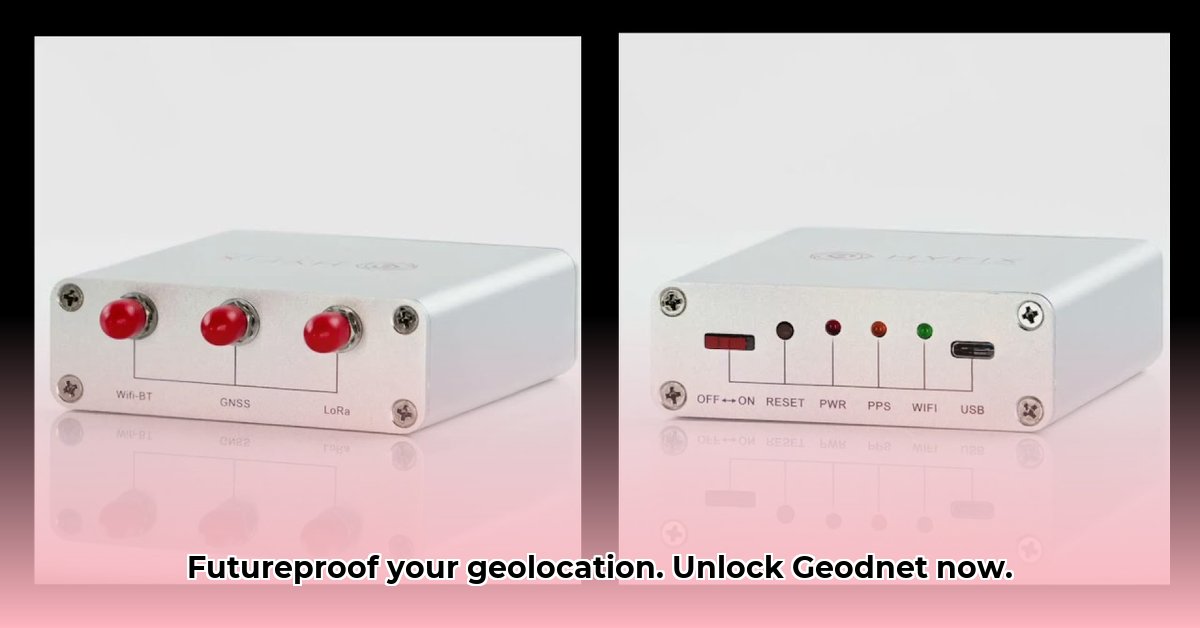
Console Geodnet represents a paradigm shift in geolocation technology, offering a decentralized and potentially more secure alternative to traditional systems. This article explores its architecture, tokenomics, security considerations, and potential applications.
How Console Geodnet Works: A Decentralized Approach
Console Geodnet leverages a global network of interconnected devices, termed "Base Stations" or "Satellite Miners," to acquire and process location data. These Base Stations, distributed geographically, collect location information using a combination of technologies, including satellite data. The precise methodologies remain partially undisclosed, but the core principle involves triangulation and data validation from multiple sources. This decentralized architecture contrasts sharply with centralized systems reliant on single points of failure. The resilience of the network is enhanced, as the system continues functioning even with some Base Stations offline. Sophisticated algorithms then process this collective data to generate highly accurate and continuously updated location coordinates. The system's self-healing capacity enables operational continuity even during node failures.
How does this translate to real-world accuracy? While specific performance metrics aren't publicly available, the distributed nature and data redundancy suggest a potentially higher level of accuracy and fault tolerance compared to traditional GPS systems. Does this increased redundancy translate directly into improved precision? Further independent testing is needed to definitively quantify these improvements.
GEOD Tokenomics: Incentivizing Network Participation
The GEOD token, a cryptocurrency, underpins Console Geodnet's economic model. Base Station operators earn GEOD tokens for contributing accurate data and maintaining operational integrity. This incentivizes participation and ensures the network's continued growth and accuracy. The token's value is inherently tied to the network's success and adoption, however, making it susceptible to market volatility, a common characteristic of cryptocurrencies. While the developers aim to stabilize the GEOD token through expanded utility and further development of its use cases, the inherent risk of cryptocurrency investment remains. How will Console Geodnet address the challenges of maintaining token stability within a volatile market? The long-term success of the platform heavily depends on carefully managing these economic factors. The transparent distribution and reward mechanisms, governed by smart contracts, aim to address potential concerns regarding fairness and manipulation.
Security and Scalability: Addressing the Challenges
Console Geodnet employs robust security measures, including encryption, authentication protocols, and regular security audits. However, no system is entirely immune to attacks. The decentralized nature, while enhancing resilience, also introduces a more complex security landscape, requiring constant vigilance and adaptation. The risk assessment matrix highlights key security and scalability challenges:
| Risk Category | Probability | Impact | Mitigation Strategies |
|---|---|---|---|
| Security Breaches | Moderate | High | Robust security protocols; continuous security audits and updates |
| Network Overload | Moderate | High | Efficient data processing; network sharding; load balancing |
| Token Price Volatility | High | Moderate | Development of practical token utilities; community growth initiatives |
Scalability presents another significant hurdle. As the network expands, managing the increasing data volume requires efficient data processing techniques and potentially innovative solutions like network sharding. The developers are actively working to address these issues to ensure the platform remains responsive and reliable even with significant network growth.
Use Cases and Potential: A Broad Spectrum of Applications
Console Geodnet's precise location data has a wide range of potential applications across various industries. Businesses can leverage it for real-time asset tracking, logistics optimization, and supply chain management. Individual users might find it beneficial for enhanced navigation or location-based services. Furthermore, the technology could transform location-based gaming and augmented reality experiences. What specific industries are likely to benefit the most from Console Geodnet's technology? This question warrants ongoing analysis as the platform matures. The decentralized and privacy-focused nature of the platform could attract users and businesses concerned regarding data privacy.
Competition and Future Outlook: Navigating the Geolocation Landscape
Console Geodnet faces competition from established geolocation providers, but its decentralized architecture and potential for enhanced accuracy and privacy offer a unique selling proposition. Its future success will hinge on network growth, technological improvements, and the sustained value of the GEOD token. Continuous innovation and development will be paramount in navigating the competitive landscape and achieving market leadership. What is the current competitive landscape? Further research is needed to fully assess the strengths and weaknesses of Console Geodnet relative to other providers. The platform’s decentralized model potentially reduces reliance on centralized points of control and this could create a competitive advantage.
Conclusion: A Promising Future for Geolocation
Console Geodnet presents a compelling vision for the future of geolocation technology. While challenges remain, its decentralized architecture, robust security measures, and innovative tokenomics offer considerable potential for disrupting the industry and bringing a new level of accuracy and security to location-based services. The platform's ultimate success will depend on ongoing development, market adoption, and the proactive addressing of the challenges outlined above.